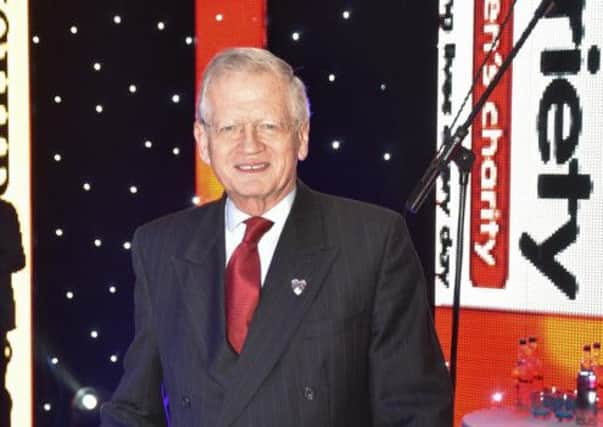Veteran lawyer who helped transform Leeds delivers verdict on business world


Nearly 50 years on, the outgoing head of corporate, Europe at Pinsent Masons has delivered his verdict on the way we do business in 2014.
In a valedictory interview, Mr Shaw attacked short-termism in the City, claimed that foreign ownership of Yorkshire companies has weakened the region’s legal industry and bemoaned the lack of big personalities in a sector obsessed with performance data and brand consistency.
Advertisement
Hide AdAdvertisement
Hide AdMr Shaw, who spent his entire career with the same firm, played a key role transforming a city in post-industrial decline into a professional services powerhouse.
He said: “What we did as a group of firms was to change the perception of Leeds; if you needed advice on corporate finance you didn’t have to go to a London-based law firm.
“Many of our lawyers were trained in London anyway and we were cheaper. As soon as we did one float, a lot more followed.”
The forerunner firm to Pinsent Masons and its counterparts worked on multiple flotations of Yorkshire companies in the 1970s and 1980s. It was a tight-knit community with a strong referral system that presented a different face to business clients who were used to a “a rather stodgy blue-blooded approach”, said Mr Shaw.
Advertisement
Hide AdAdvertisement
Hide AdHe said that Leeds is “probably still the strongest legal centre outside of London… but it’s not so good these days simply because the number of Yorkshire plcs is a fraction of what it was 30 years ago”.
This is because of “absentee landlords”, he said. “The business is still a Yorkshire business but it is not owned by UK shareholders very often,” he added.
“They still require legal advice, but it’s not legal advice at a strategic level. It is at operational level - employment law, commercial contracts, day-to-day requirements.”
Despite the ownership of Yorkshire businesses changing out of all recognition, Mr Shaw said: “I don’t think we should be despondent about it - it’s a question of how you judge success.
Advertisement
Hide AdAdvertisement
Hide Ad“If those businesses, even under foreign ownership, are still doing well, that’s good for the local economy. But for advisory firms it’s no so good because it means we have to chase our work outside the region.”
He estimated that 60 per cent of work at Pinsent Masons in Leeds is for companies outside the region, a figure he said would be replicated in the city’s other major firms.
Mr Shaw said the proportion shows Yorkshire’s prominence, but presents a challenge to big law and accountancy firms in the way that they relate to a local business “that sees an amorphous unconnected huge office”.
With bigger firms comes the need for brand consistency, said Mr Shaw. “As big firms, we can’t afford to have loose cannons, the person who goes out on a limb on his own,” he added.
Advertisement
Hide AdAdvertisement
Hide AdMr Shaw said the legal sector lacks the big personalities of the past; people are valued through measurable performance data, “the sort of stuff that’s disclosed on a computer”.
The advent of new technology has improved the service offered by professionals and allows deals to be quicker and more responsive, but quality of life has suffered, said Mr Shaw.
He said there is no need to respond within an hour and, nine times out of ten, a response sent the next day is of better quality.
Mr Shaw also criticised the pressure from the City on companies to deliver consistently bigger figures at all costs.
Advertisement
Hide AdAdvertisement
Hide Ad“It’s not good for Britain and you find there’s a litany of examples of companies that artificially support their profits,” he said.
“It’s the pressure to deliver that causes people to do bad things.”
Mr Shaw has seen numerous recessions during his career. Each time, the new generation of business leaders fear the worst instead of taking the necessary steps to prepare for the downturn, he said.
He said sending more leaders to business school could educate them better about dealing with recessions “instead of just letting it happen”. Mr Shaw is considering non-executive roles.
Martin Shaw factfile
* Started work on August 1, 1966
* Became firm’s youngest ever equity partner at 26
* Cut his teeth on stock market flotations in early 70s
Advertisement
Hide AdAdvertisement
Hide Ad* Led flotations of Spring Ram, SIG, Polypipe, Eurocopy, Coated Electrodes and Hunters Armley among others
* Public to private takeovers of Newcastle and Sunderland football clubs
* Co-founder and chairman of Legal Resources Group
* Chairman of Variety’s Yorkshire Business Awards for 23 years
* Led efforts to raise £3m for Variety, the children’s charity
* Board member Pinsent Masons 2008-2011